Search Results
Showing results 1 to 12 of 12

Glaciers
Source Institutions
In this online activity, learners adjust mountain snowfall and temperature to see how glaciers grow and shrink. They will use scientific tools to measure thickness, velocity and glacial budget.
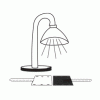
Understanding Albedo
Source Institutions
In this activity related to climate change, learners examine albedo and the ice albedo feedback effect as it relates to snow, ice, and the likely results of reduced snow and ice cover on global temper

What-a-cycle
Source Institutions
In this activity, learners act as water molecules and travel through parts of the water cycle to discover that it is more complex than just water moving from the ground to the atmosphere.
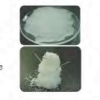
Special Effects Using Household Chemicals
Source Institutions
In this activity on page 4 of the PDF (Behind the Scenes with Chemistry), learners make some special effects, including snow and breaking glass, with supplies found in the home.
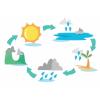
Water Cycle in a Bag
Source Institutions
In this activity, learners will explore the water cycle by creating a small atmosphere.
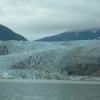
Moving Model Glacier
Source Institutions
In this goopy activity (page 2 of PDF under GPS: Glaciers Activity), learners will model glacial movement with “gak,” a white glue and liquid starch mixture.

Wintergreen
Source Institutions
In this outdoor, winter activity, learners find living green plants under the snow and determine the light and temperature conditions around the plants.

Polar Bear Glove
Source Institutions
In this activity, learners will explore how animal in cold areas stay warm.

Homemade Snow
Source Institutions
In this sensory activity, learners enjoy the fun of a snow day any season of the year.
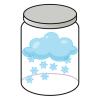
Snowstorm in a Jar
Source Institutions
In this activity, learners will experiment with density and chemical reactions to create a flurry activity.
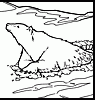
Arctic Story Puzzles
Source Institutions
This activity has three story puzzles learners can solve to learn about life in the Arctic.
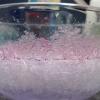
Salt Crystal Garden
Source Institutions
In this activity, learners will explore saturated solutions and discover how crystals form.
